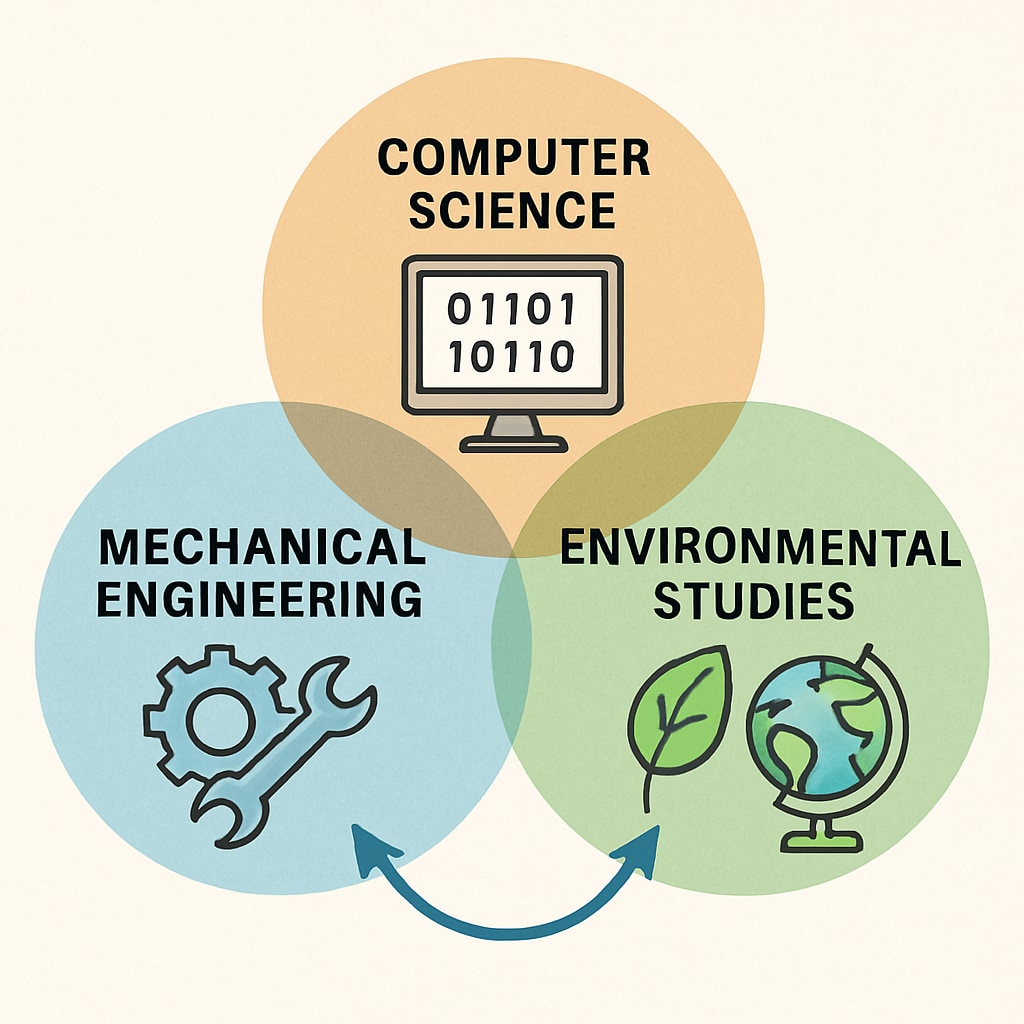In today’s rapidly evolving job market, acquiring an online degree alongside a traditional major such as mechanical engineering has emerged as a strategic way to enhance career competitiveness. With advancements in technology and the increasing accessibility of online programs, students in the K12 phase can start laying the foundation for this dual-degree approach early. By incorporating cross-disciplinary learning and leveraging online platforms, future professionals can cultivate unique skills that differentiate them from their peers and open doors to diverse career opportunities.
Why Consider a Dual Degree Strategy?
As industries become more interconnected, employers increasingly value candidates with cross-disciplinary expertise. For example, combining mechanical engineering with business analytics or computer science learned through an online degree can create a highly versatile skill set. Students who plan strategically during their K12 years can position themselves for success by integrating foundational learning in multiple fields. This not only enhances their ability to solve complex problems but also increases their marketability in competitive job sectors.

Benefits of Online Degrees for K12 Students
Online degrees offer several advantages for K12 students planning their future. These include:
- Flexibility: Students can learn at their own pace and balance extracurricular activities with academic commitments.
- Affordability: Many online programs are cost-effective compared to traditional degrees, reducing financial barriers.
- Global Exposure: Online platforms often connect students with instructors and peers worldwide, fostering a global perspective.
For example, platforms such as Coursera and edX provide access to high-quality courses from top universities, enabling students to explore subjects that complement their chosen major.
Integrating Mechanical Engineering with Online Learning
Mechanical engineering is a versatile field that overlaps with disciplines like robotics, data science, and environmental studies. By pursuing relevant online courses or degrees, students can enrich their knowledge and broaden their career prospects. For instance, learning coding through an online program can empower future engineers to develop AI-driven solutions or optimize manufacturing processes.

Personalized Strategies for Different Students
Not all students have the same interests, resources, or learning styles. Therefore, personalized strategies are essential:
- For tech-savvy students: Focus on online programs related to programming, AI, or cybersecurity.
- For creative thinkers: Explore courses in design thinking, product innovation, or digital arts.
- For aspiring entrepreneurs: Combine engineering studies with business or management courses to develop leadership skills.
By identifying strengths and aligning them with future goals, students can create a tailored learning path that maximizes their potential.
Challenges and How to Overcome Them
While the dual-degree approach offers numerous benefits, it’s not without challenges:
- Time management: Balancing online coursework with traditional studies may be difficult but can be addressed with effective scheduling tools.
- Resource limitations: Students from underserved communities may face barriers accessing technology. Initiatives like school-funded programs can help bridge this gap.
- Overload: Taking on too much can lead to burnout. Prioritize essential courses and set realistic academic goals.
Proactively addressing these challenges ensures a smoother and more productive learning experience.
Building Long-Term Career Competitiveness
Incorporating online degrees into a student’s education plan is an investment in future career success. By developing cross-disciplinary skills, students are better prepared to adapt to industry changes, embrace innovation, and tackle global challenges. Employers value candidates who demonstrate initiative, versatility, and the ability to learn continuously—qualities fostered through dual-degree strategies.
In conclusion, the dual-degree approach, particularly when integrating fields like mechanical engineering through online learning, is a powerful way for students to enhance their career competitiveness. Planning ahead during the K12 phase is key to building a strong academic foundation, exploring diverse interests, and preparing for the dynamic job market of tomorrow.


